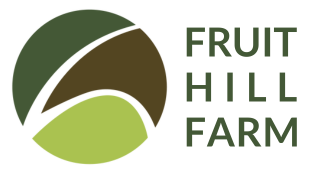We use cookies to make your experience better. To comply with the new e-Privacy directive, we need to ask for your consent to set the cookies. Learn more.
Open Pollinated Seeds

We have over 200 vegetable, herb and flower seeds – enough to keep you busy for years! If you are canny you can save all your future seeds from our seeds because not only are they organic but they are open pollinated!
What are Open Pollinated seeds?
• Open pollinated varieties are those that come true from seed, as opposed to hybrid varieties which are produced by crossing two inbred lines of plants for seed.
• Are naturally pollinated (no enforced pollination or in-breeding).
• Contribute to food plant bio-diversity (of which we have lost 80% in Europe this last Century).
• Are genetically variable and therefore able to adapt to climate change, to particular landscapes and environmental conditions, and evolve along with them.
• Can be saved by farmers, market gardeners, home gardeners and allotment holders.
• Can be used to develop local varieties.
• Are non-GM, non-hybrid and non-patented – free for all and renewable.
Why are Open Pollinated Seeds Important?

Unlike F1 (hybrid) seeds, the offspring of open pollinated seeds will be roughly identical to its parents. The “roughly” bit matters. The new plants will closely resemble their parents and have their characteristics, but will also have their own genetic diversity, and that means adaptability and resilience to changing conditions, sensitive to the environment and thereby flexible towards adaptation.
F1 seeds lack genetic diversity. Without this, they cannot maintain long-term plant health from generation to generation. (Consider the Cavendish Banana. Almost the entire global banana supply is dependent on this one variety, which is now in danger of collapse because of a single disease. It has already happened before - the Gros Michel used to be banana number one, until it was wiped out by disease in the 1950s.)
Seeds of domesticated plants have been handed down from our ancestors for thousands of years. They have been saved by ordinary farmers for most of this time, and this has brought about a vast diversity of varieties. Old varieties were kept because they produced valuable crops, often under less than ideal conditions. F1 varieties are bred to perform under ideal conditions of climate and fertility, and often perform badly when stressed.
By buying and growing open-pollinated seeds you are -
- Supporting the breeding of new open-pollinated varieties.
- Contributing to diversity in nature.
- Supporting the maintenance of old varieties.
Seeds are the first and essential element of the food chain: without seeds, there is no agriculture and therefore there is no food. Open pollinated seeds give us all a chance to own our food security and to secure it for future generations. By choosing open pollinated seeds you are increasing everyones food security and helping to stop the reliance on non renewable seed. Our food system depends on viable, living seeds, capable of reproducing themselves.




